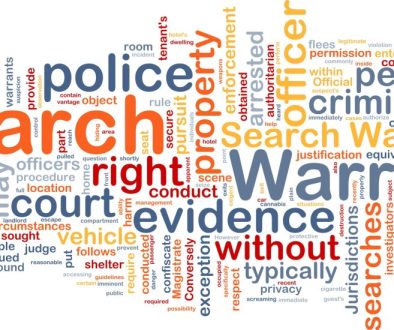Gun & Deadly Weapon Charges | Felony And Enhanced Punishment
In previous articles I have discussed sentencing enhancements for deadly weapons. Sentencing enhancements can increase the punishment that a person could receive following a conviction for a crime involving a deadly weapon such as a gun. Sentencing enhancements, however, and mandatory minimum sentences continue to be a very hot button issue in criminal law. Since sentencing enhancements and mandatory minimum sentences increase punishments the issue of deadly weapon possession becomes very important in criminal cases. If you are charged with a crime of violence such as a robbery or an assault and this crime involves a deadly weapon such as a gun you are not only subject to a felony conviction for these crimes, but an enhanced punishment because of the manner in which it was committed.
.jpg) The United States Supreme Court in Apprendi v. New Jersey, 120S.C.t.2348(2000) found that any conviction which increases the range of punishment beyond the statutory maximum for a crime must be proven beyond a reasonable doubt. This means that if you were convicted for a robbery which involved a gun the prosecution must prove that you committed the robbery and used the gun beyond a reasonable doubt. In the past, Pennsylvania and New Jersey courts imposed enhanced sentences following a conviction for a violent felony such as a robbery if the prosecution proved, by a preponderance of the evidence, that a gun was used during the act.
The United States Supreme Court in Apprendi v. New Jersey, 120S.C.t.2348(2000) found that any conviction which increases the range of punishment beyond the statutory maximum for a crime must be proven beyond a reasonable doubt. This means that if you were convicted for a robbery which involved a gun the prosecution must prove that you committed the robbery and used the gun beyond a reasonable doubt. In the past, Pennsylvania and New Jersey courts imposed enhanced sentences following a conviction for a violent felony such as a robbery if the prosecution proved, by a preponderance of the evidence, that a gun was used during the act.
It is important to understand that “beyond a reasonable doubt” is a much higher burden of proof then “preponderance of the evidence”. In the Apprendi decision the Supreme Court held that if a trial court imposes a sentence beyond a person’s statutory maximum using an enhancement it violates the individual’s Fourteenth Amendment Right to due process and the person’s Six Amendment Right to trial by jury. The Sixth Amendment also guarantees that a person can only be found guilty if each and every element of a crime is proven beyond a reasonable doubt.
Criminal courts in Pennsylvania and New Jersey along with courts in all other states must follow the Apprendi decision. The United States Supreme Court is the highest court in the country and all other courts are therefore bound by its decisions. The Apprendi decision, however, does not mean that the prosecution must always prove that a deadly weapon was used in the commission of a violent felony beyond a reasonable doubt. The prosecution is only required to meet this high burden of proof where the enhancement increases the maximum punishment for the crime. If the enhancement does not increase the maximum punishment the criminal trial court is not bound by the Apprendi decision. Pennsylvania courts, pursuant to 42 Pa.C.S.§9712, still allow a criminal trial court to use the deadly weapon enhancement without violating a person’s due process rights (Fourteenth Amendment) or his right to a jury trial (Sixth Amendment) as long as the sentence does not increase the maximum sentence under Pennsylvania law.
Contact Our Criminal Defense Lawyers in PA & NJ
Please click here to contact our Philadelphia criminal defense lawyers. We offer free case reviews and serve the following areas in Pennsylvania and New Jersey, Atlantic City, Camden, Cherry Hill, Chester, Conshohocken, Doylestown, Media, Norristown, Philadelphi



